Not so fast, according to Salk research The last time you had a stomach bug, you probably didn’t feel much like eating. This loss of appetite is part of your body’s normal response to an illness but is not well understood. Sometimes eating less during illness promotes a faster recovery, but other times—such as when cancer patients experience wasting—the loss of appetite can be deadly. Research by Janelle Ayres and first author Sheila Rao showed how bacteria block the appetite loss response in their host both to make the host healthier and also promote the bacteria’s transmission to other hosts. This surprising discovery, published in the journal Cell on January 26, 2017, revealed a link between appetite and infection and could have implications in treating infectious diseases, infection transmission and appetite loss associated with illness, aging, inflammation or medical interventions (like chemotherapy).
Feed a cold, starve a fever?
Featured Stories
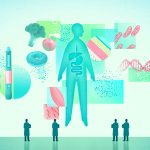 What’s next for GLPs? Salk scientists are shaping the future of weight-loss medicineSalk researchers are breaking metabolism down piece by piece. Their recent discoveries could help reduce the side effects of GLP-1 drugs and inspire the next generation of weight management therapies.
What’s next for GLPs? Salk scientists are shaping the future of weight-loss medicineSalk researchers are breaking metabolism down piece by piece. Their recent discoveries could help reduce the side effects of GLP-1 drugs and inspire the next generation of weight management therapies.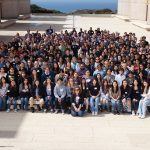 Science comes alive for high schoolers and educators at SalkSalk’s annual High School Science Day had the highest participation in the event’s history, as 205 excited students were welcomed onto campus. Teachers also had a day of their own at the Ellen Potter Teacher Symposium, learning side-by-side with world-renowned scientists.
Science comes alive for high schoolers and educators at SalkSalk’s annual High School Science Day had the highest participation in the event’s history, as 205 excited students were welcomed onto campus. Teachers also had a day of their own at the Ellen Potter Teacher Symposium, learning side-by-side with world-renowned scientists.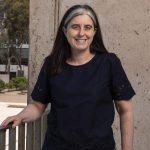 Nicola Allen: Neuroscience has a new starAs her recent promotion and awards reflect, Allen has led a paradigm shift in neuroscience by turning the field's spotlight onto astrocytes. These specialized brain cells could be the missing piece to understanding Alzheimer's and other neurological diseases.
Nicola Allen: Neuroscience has a new starAs her recent promotion and awards reflect, Allen has led a paradigm shift in neuroscience by turning the field's spotlight onto astrocytes. These specialized brain cells could be the missing piece to understanding Alzheimer's and other neurological diseases.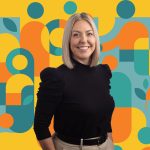 Michelle Chamberlain: Bringing together communities old and newChamberlain, whose lifelong commitment to others has shaped her journey to Salk, now serves as Salk’s vice president of External Relations, leading fundraising, communications, community engagement, foundation relations, and stewardship efforts.
Michelle Chamberlain: Bringing together communities old and newChamberlain, whose lifelong commitment to others has shaped her journey to Salk, now serves as Salk’s vice president of External Relations, leading fundraising, communications, community engagement, foundation relations, and stewardship efforts.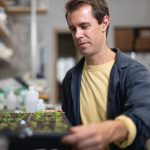 Joseph Swift: Saving potatoes, one road trip at a timeSwift, a plant biologist and startup co-founder, had an adventurous upbringing in Australia filled with natural beauty. Today, he uses plant genomics to tackle urgent questions in sustainability and agriculture.
Joseph Swift: Saving potatoes, one road trip at a timeSwift, a plant biologist and startup co-founder, had an adventurous upbringing in Australia filled with natural beauty. Today, he uses plant genomics to tackle urgent questions in sustainability and agriculture.





















































